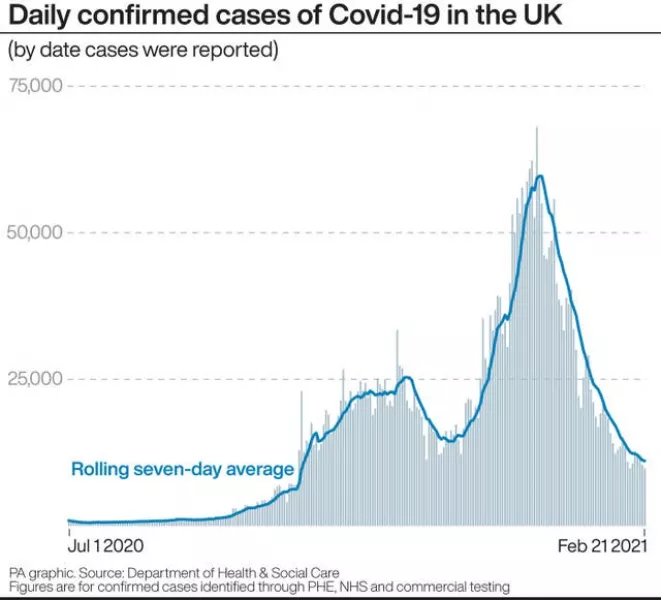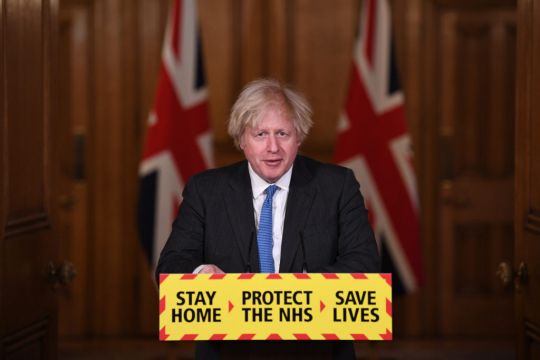Schools, socialising and some sports are set to return next month under the UK government’s plan to relax coronavirus lockdown restrictions in England.
It is understood that prime minister Boris Johnson will tell MPs that all pupils in all years can go back to the classroom from March 8th, with outdoor after-school sports and activities allowed to restart as well.
Socialising in parks and public spaces with one other person will also be permitted in a fortnight when the rules are relaxed to allow people to sit down for a drink or picnic.
A further easing of restrictions will take place on March 29th when the country's school Easter holidays begin – with larger groups allowed to gather in parks and gardens.
The “rule of six” will return along with new measures allowing two households totalling more than six people to meet – giving greater flexibility for families and friends.
Outdoor sports facilities such as tennis and basketball courts are also set to reopen at the end of next month.
And organised adult and children’s sport – including grassroots football – can return from March 29th.
However, Number 10 insisted that the “stay at home” message would remain in place despite the relaxation of some restrictions.
The measures form the first of four steps in the road map which Mr Johnson is set to outline in a statement to the the UK parliament on Monday afternoon.
He has stressed the need to relax restrictions in a “cautious” manner, saying the government would make decisions based on the latest data at every step.

Ministers will assess the success of the vaccine rollout, evidence of vaccine efficacy, new variants and infection rates before proceeding to the next step.
The tests are currently being met, Downing Street said, allowing the first relaxation to take place on March 8th.
But now that one in three adults in the UK have received their first dose of a coronavirus vaccine, Mr Johnson will face pressure from some Tory MPs to ease measures more quickly.
However, scientists have urged caution, with leading epidemiologist Prof John Edmunds warning that any easing of the lockdown must be gradual to prevent a surge in hospital admissions and deaths.
And the Royal College of Nursing (RCN) said Mr Johnson should not to “bow” to political pressure and dilute public messaging in the road map.
Teaching union NASUWT, meanwhile, issued a fresh call for education staff to be prioritised for vaccines in the second phase of the rollout as schools reopen.
Number 10 said the road map would seek to balance the health needs with the social and economic impacts of lockdown.

For example, outdoor activities are set to be opened earlier than indoor ones, due to the reduced risk of spreading coronavirus outside.
MPs will be given the chance to vote on the regulations enabling the road map in the coming weeks.
Mr Johnson will chair a virtual meeting of his Cabinet on Monday morning to discuss the plan, and then unveil the details to the UK Parliament in the afternoon.
He is expected to host a Downing Street press conference at 7pm on Monday alongside key advisers.







